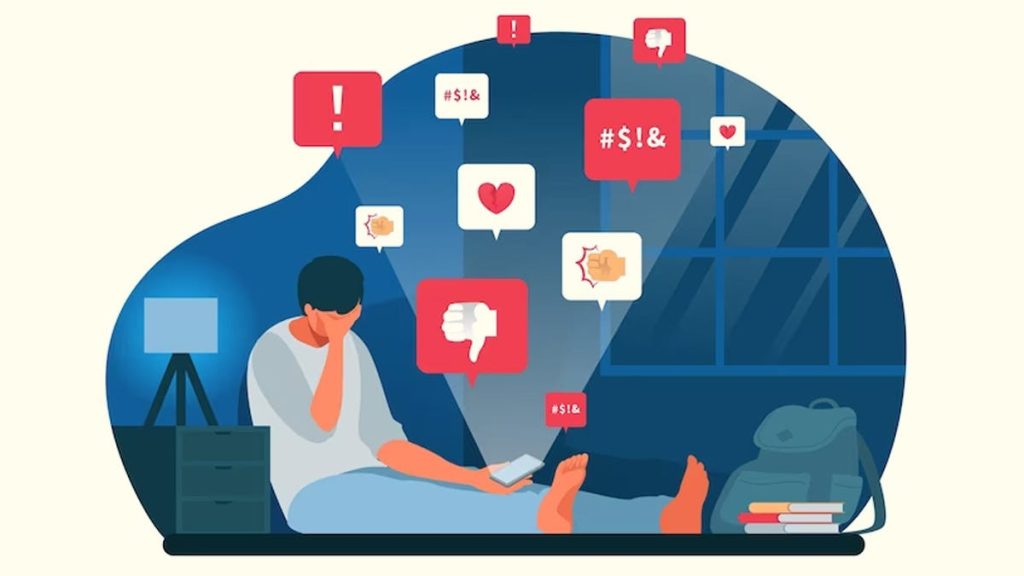While we are aware that social media sites have many advantages, such as establishing a connection with others, building networks, engaging in debates, increasing one’s media literacy, one needs to understand that social media can cause some harm. The first negative is effects on a young person’s mental health. A studyconducted in 2019 in the U.S. found that those who spent more than three hours a day using social media might be at a higher risk for mental health problems. Another study that was published in 2019 in England found that using social media more than three times a day predicted poor mental health and well-being in teens.
Sadly, evidence of the negative consequences of the usage of social media on mental health does not stop there. It suggests that smartphone and social media use increase mental distress, self-harmful behavior and suicidality among youth, girls being the most vulnerable to this trend.[1][2][3][4]
While we understand that there is an urgent need for public awareness campaigns and social policy initiatives that promote an online environment that encourage discussions about this issue as youth navigate the challenges of adolescence in today’s world, we need to ask, what can we do to diminish or stop this trend? What are examples of best practices or initiatives in some Western Balkan countries where technology and social media has been used to combat the issue?
In Serbia, organizations such as Okular have started a campaign where youth can anonymously send in their concerns and talk with psychologists, peers and others about the issues that have been bothering them through Instagram or their website. This allows the youth to feel free to communicate with others about the issues that they are facing and to discuss their mental health condition.
In Bosnia and Herzegovina, a group of high school students created an app called “D-App” which works to tackle stigmas around mental health issues and to provide professional help to those who need it. Moreover, initiatives that have created Instagram profiles such as Slon u sobi have been seen to have the most reach to the youth that might need help or advice when it comes to issues they are dealing with.
These are only some examples of good practices around the WB and proofs that social media is not only causing harm to one’s mental health but working towards restoring it. It is crucial to be aware of possible dangers to your mental health that can come from an excessive use of the online sphere. Being aware will lead to recognizing alterations in your mood, feelings and well-being. And if we can use the internet to boost our well-being, what is the point? Can you tell us about good practices that you have encountered that promote mental health and work to better it?








